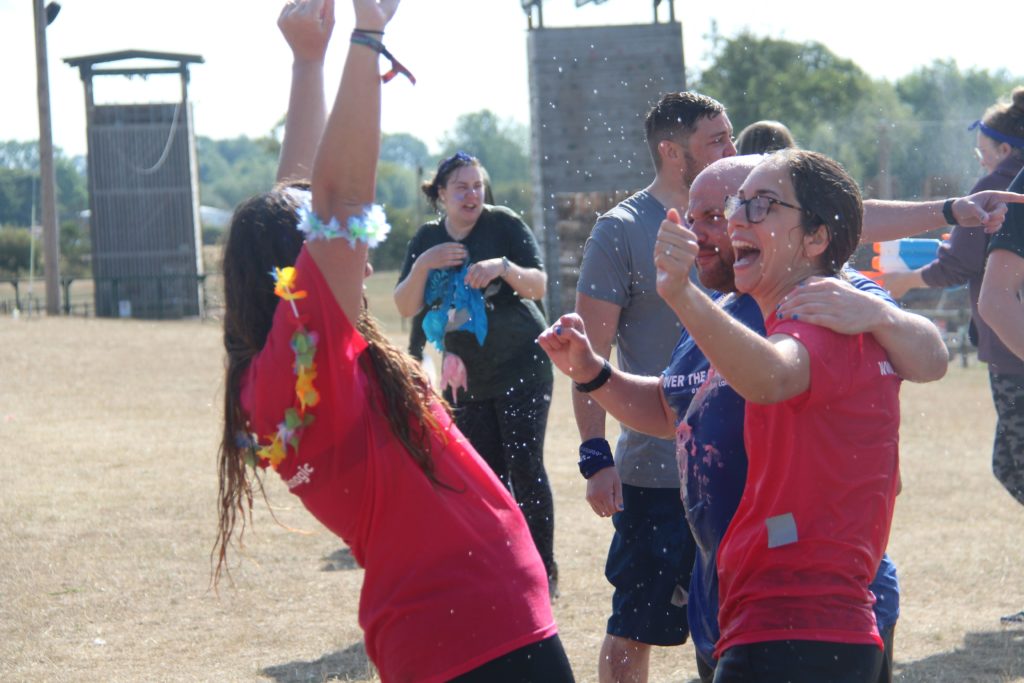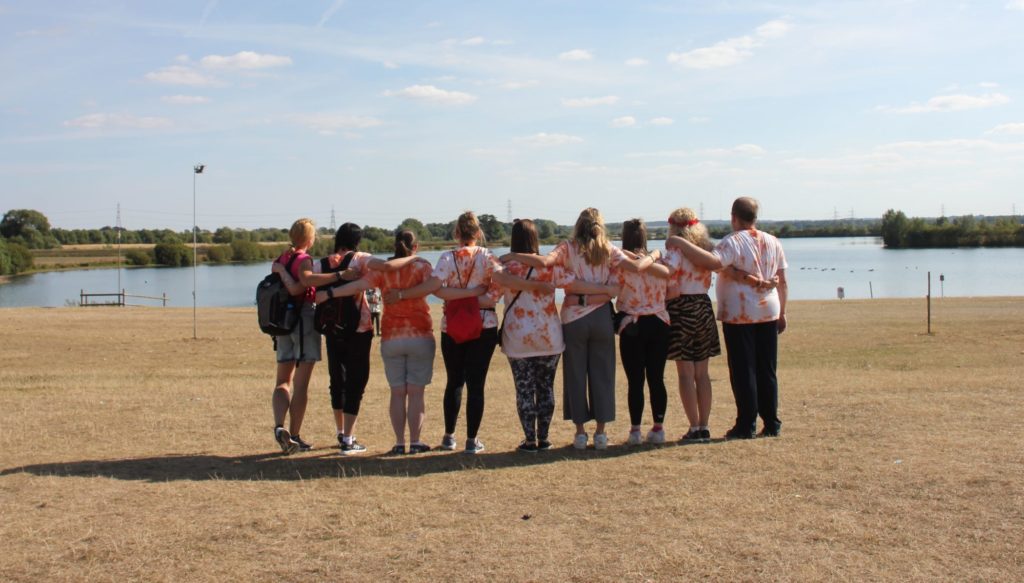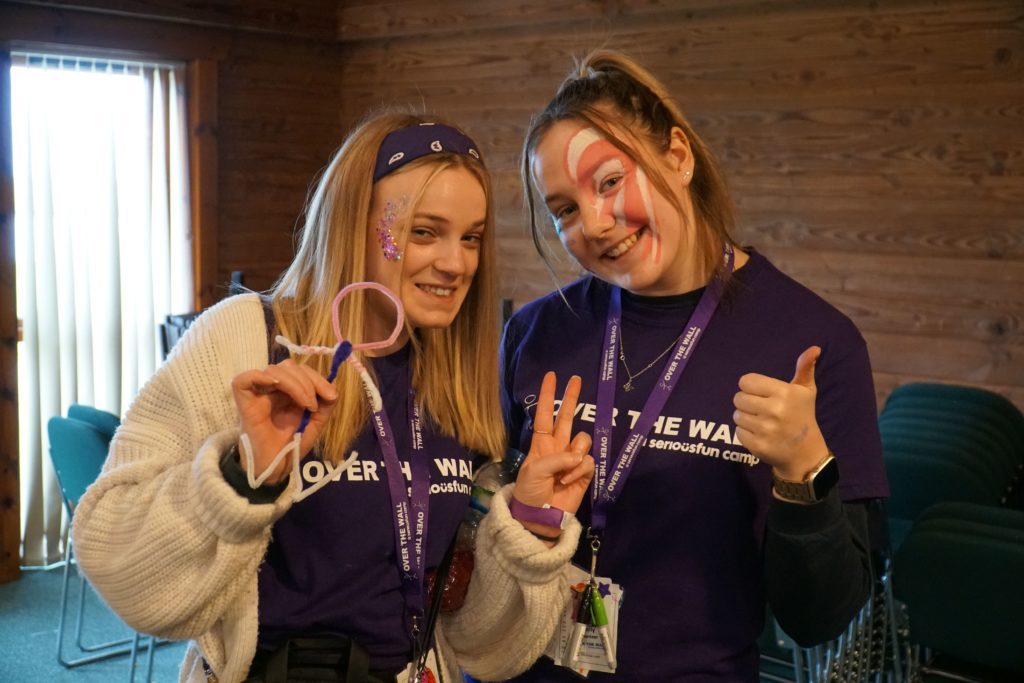Camper Wellbeing
Information for volunteers.
Camper Wellbeing
Safeguarding
“Safeguarding is the action that is taken to promote the welfare of children and prevent them from harm.” (NSPCC, 2019)
Camp may be the first time some of the children we serve have felt comfortable enough to disclose certain aspects of their lives to an adult. As a volunteer, it is your responsibility to recognise, respond and report any safeguarding concerns or worries about a camper’s welfare. Guidelines on this are covered in the pre camp e-learning and training at camp.Any concerns around the safety of a camper, a camper disclosure or a camper in psychological distress should be reported to the wellbeing team at camp.

Medical Care at Camp
All medical care at camp is delivered in the ‘Beach Hut’ by a team of clinical volunteers (doctors, nurses, student nurses and paramedics) known as the ‘Beach Patrol’. They are responsible for providing ‘home from home care’ and can be recognised by the pink t-shirts they wear throughout camp. Campers will go to the Beach Hut to receive any medications and any other medical care required. There will be a member of the Beach Patrol on-call each night.
Camper Support & Care
Camper Profiles
You will receive a profile on your campers, known as a ‘hot sheet’.This details the need to know information to ensure campers are safe and well cared for, e.g. allergies, special diets and care that is specific to their illness. Camper diagnoses are not disclosed to non-clinical volunteers.
Sun Care
Many campers will be more susceptible to the effects of the sun. The sun is at its hottest between 12pm and 3pm. shade should be sought and long sleeves worn where possible. Sunscreen SPF50 should be applied to exposed areas of skin and should be reapplied every 2 hours and after wet activities.

Personal Care
Campers may need assistance with hygiene needs, like hand washing, showering, brushing teeth and dressing as needed. The Beach Patrol are happy to offer advice or guidance with this if needed. Intimate personal care should be provided by Beach Patrol.
Allergy Awareness
Due to the range of severe and multiple ingestion and contact allergies seen at camp, the whole of camp needs to promote safe food behaviours to prevent cross contamination.
Hand washing
Hand washing prior to and after meals and activities is mandatory.Tables are cleaned before and after meals.
Hydration and Nutrition
Campers should be encouraged to stay well hydrated, especially in warm weather. Throughout the day, volunteers should ensure that the campers water bottles are filled. Please ensure you keep an eye on your camper’s eating habits. We try to encourage a healthy, varied diet. If a camper is on a special diet, this will be indicated on their hot sheet.
Fidget Bags
Teams are given a fidget bag containing basic supplies, such as baby wipes, tissues, nappy bags, alco-gel and sun cream, these can be topped up by beach patrol. The bag should be carried by a teammate at all times. Fidget bags also contain a range of back pocket games to play whilst waiting for activities and sensory items to keep campers engaged and having fun.
Challenging Behaviour
As part of the training at camp we will also give you guidance on how to manage challenging behaviour using the pro-action, re-direction and intervention model. You will also have all your teammates, team leader and support staff team to support you.

